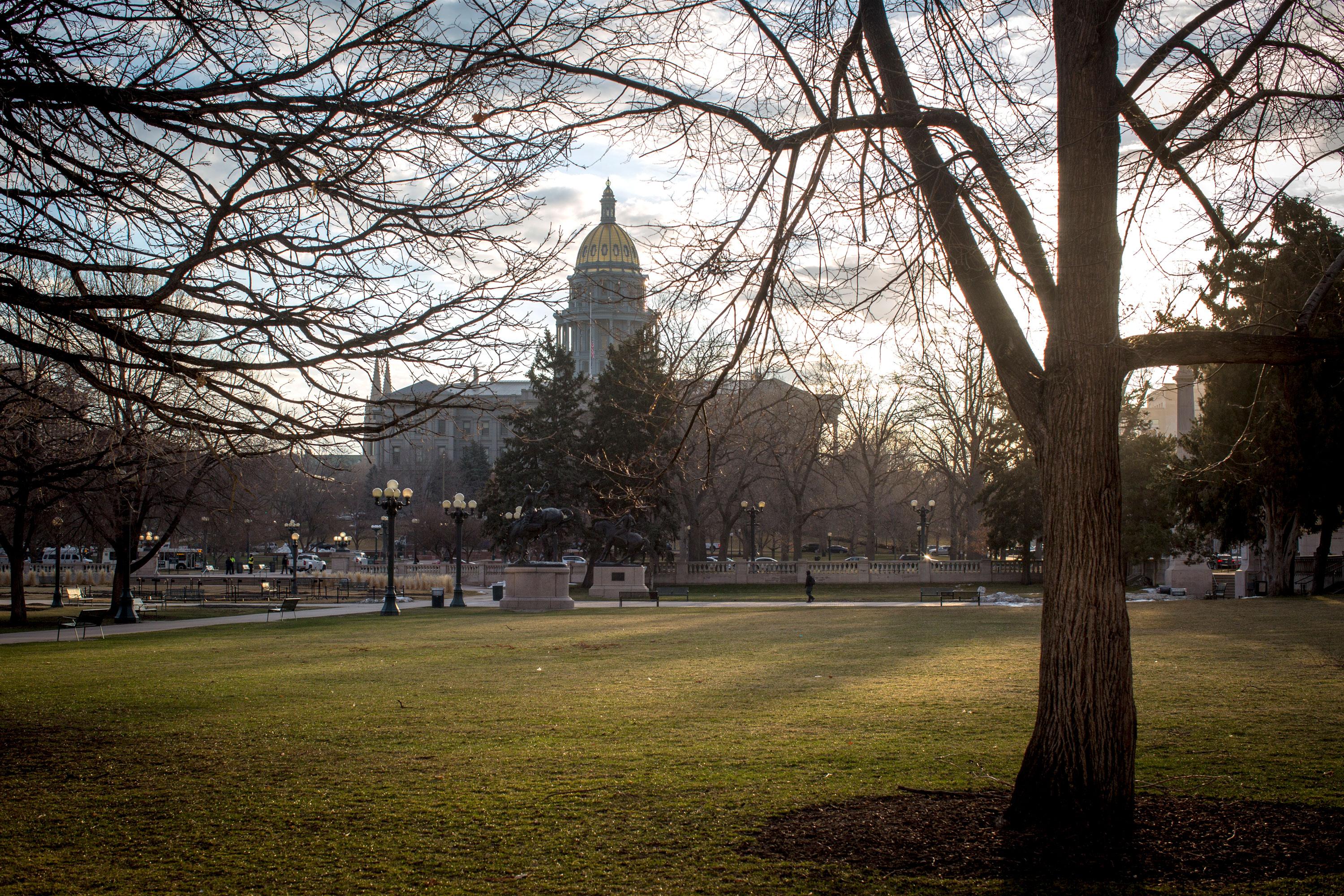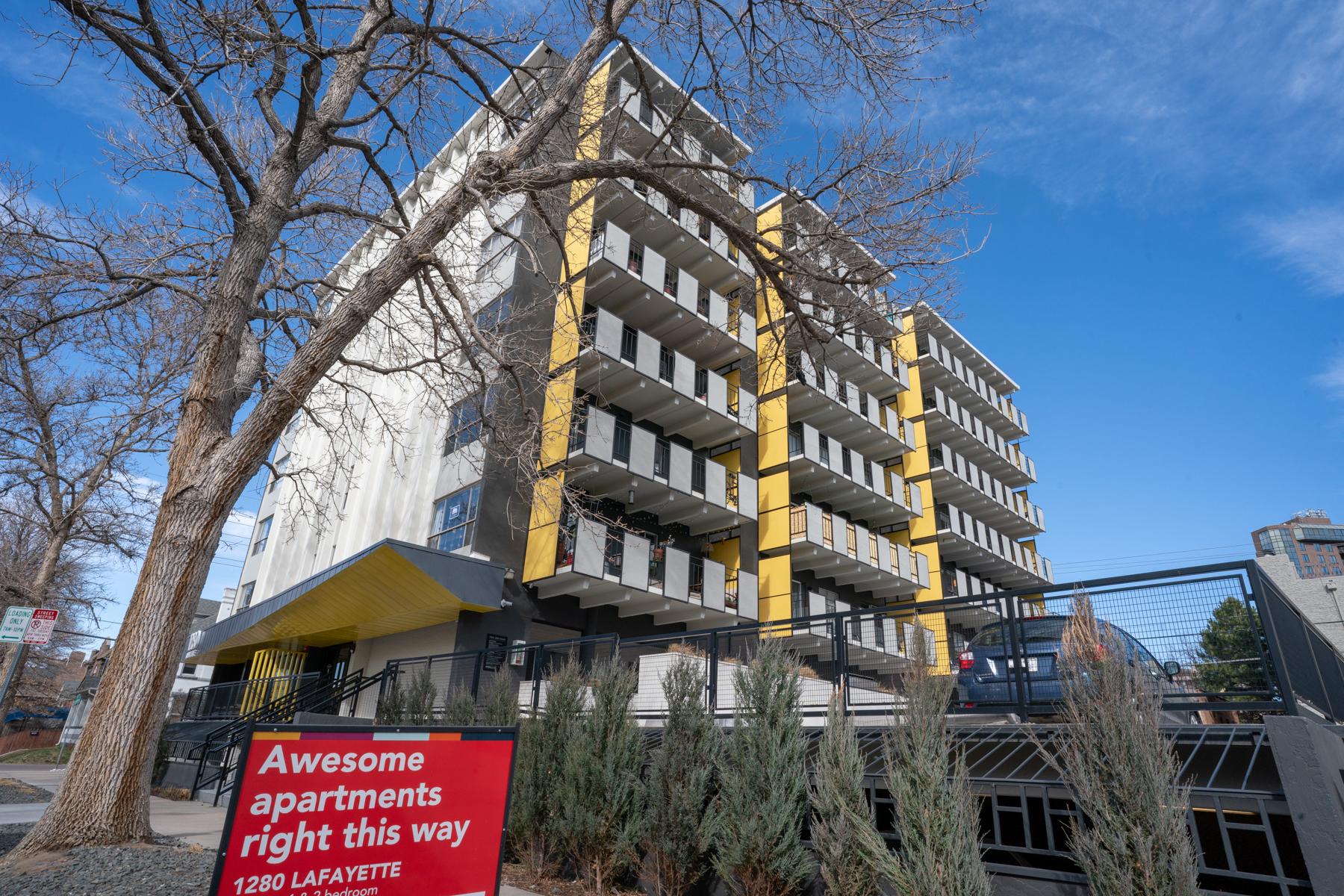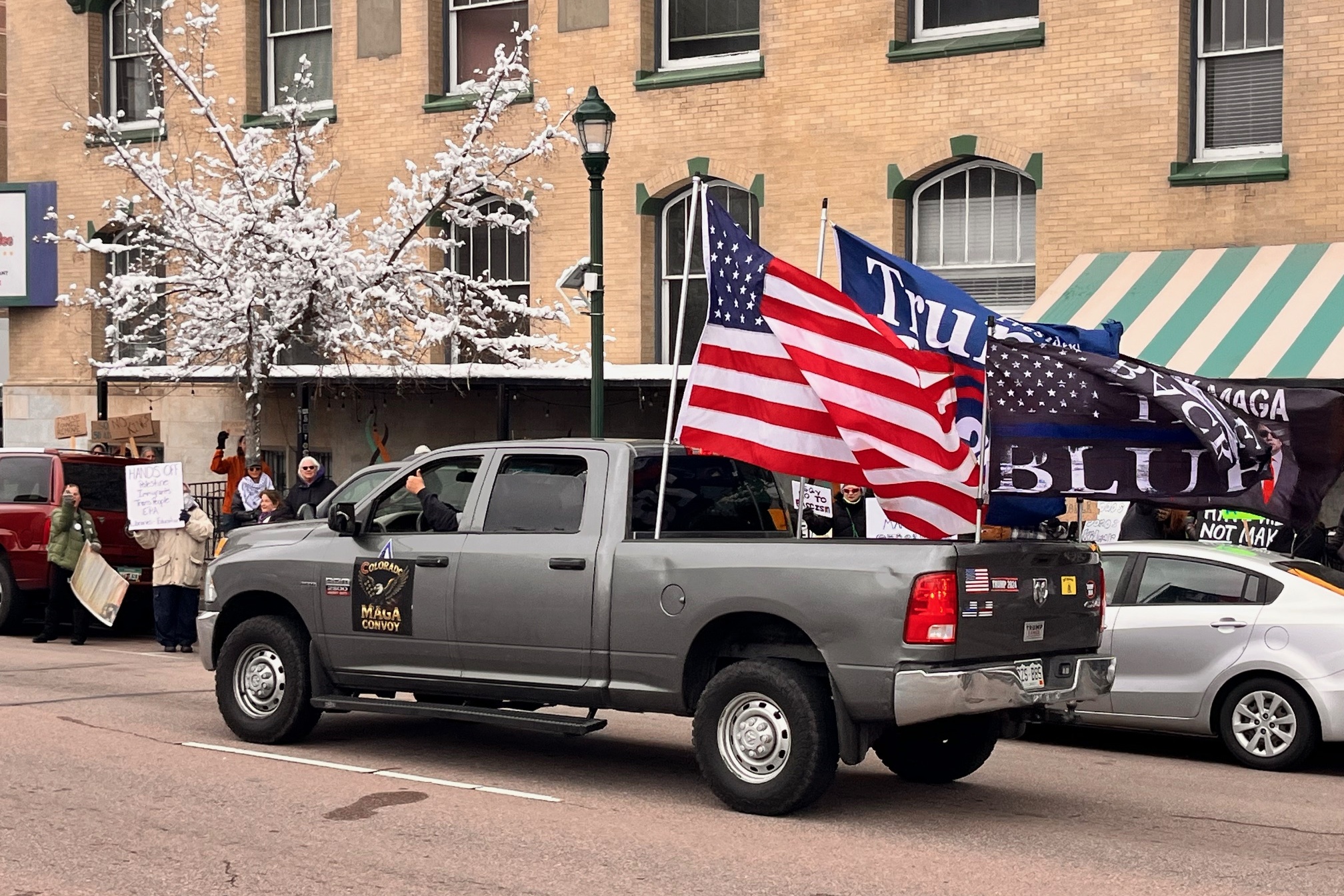

The effort to give many Colorado state workers collective bargaining rights is over, at least for this year.
Colorado is one of 16 states where state employees don’t have the right the negotiate a binding union contract. This session, Colorado WINS, the state employee union, worked with Democratic lawmakers to run a bill to change that.
The organization argued collective bargaining could help stem a staffing crisis among the state’s prison guards, mental health care workers and other employees. A recent white paper noted about one in five classified state positions were vacant as of last year — a 73 percent increase over the last decade.
But their plan hit a snag with Gov. Polis.
On Friday, the governor released a joint statement with Hilary Glasgow, Colorado WINS executive director. It said the bill had issues that couldn't be worked out with just a few days left in the legislative session.
“We are confident that we will successfully resolve these outstanding issues before the 2020 legislative session,” read the statement. “We believe we all benefit when frontline workers come together to find solutions so that Colorado is a place where all families and communities can thrive.”
The news may come as a surprise to fans of Gov. Polis. A number of unions endorsed the governor during his campaign. Polis also mentioned the importance of collective bargaining directly in his State of the State address, saying, “We will protect the rights of workers to organize and collectively bargain for the pay and benefits that they deserve.” That statement and others drew a clear contrast with governors in Republican states who have championed “right to work” laws that undercut the power of unions.
While Glasgow is sure some of her union members will be taken aback, she doesn’t think Gov. Polis has wavered on the underlying issue. She said differences between Colorado WINS and the administration came down to technical matters, like how collective bargaining could affect the employee pay scale and the governor’s authority to write a budget.
“I don’t know if it’s entirely unreasonable for a new governor with a new administration to want to get their arms around the classified system and how that works before they sign a collective bargaining bill into law,” she said.
State workers gained the right to form a union, but not to conduct collective bargaining, under a 2007 executive order from former Gov. Bill Ritter. In their joint statement, Polis and Glasgow said they had agreed to “expand the existing partnership” established by that order.
Glasgow said that meant Polis would send a notice to state department heads, making sure they understand the union is permitted to meet with employees during working hours.
State Rep. Daneya Esgar, a Pueblo Democrat who sponsored the legislation, said she wouldn’t move the bill forward without Polis’ support. It had languished in the House since being introduced late last month.
“I’m incredibly disappointed that we weren’t able to make it all the way on this bill this year,” she said. “I am optimistic to hear the Governor's Office and Colorado WINS are going to be working collaboratively to make sure state employees have a seat at the table.”
Esgar added she will bring back the bill in the next legislative session — and hopes the two sides can get to a place where Gov. Polis will sign it.









